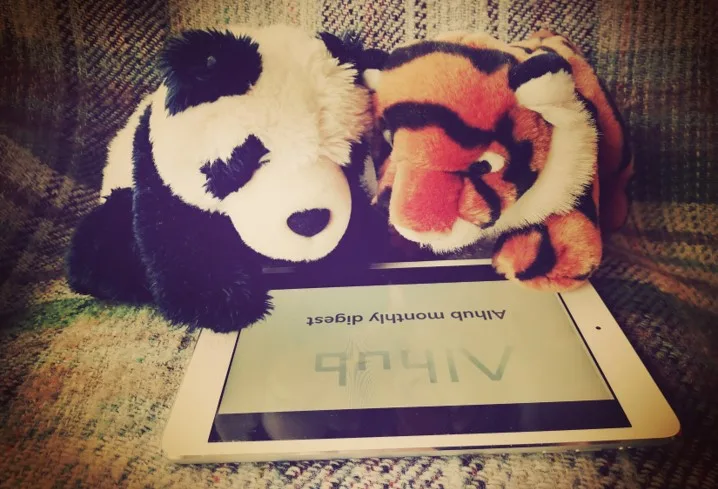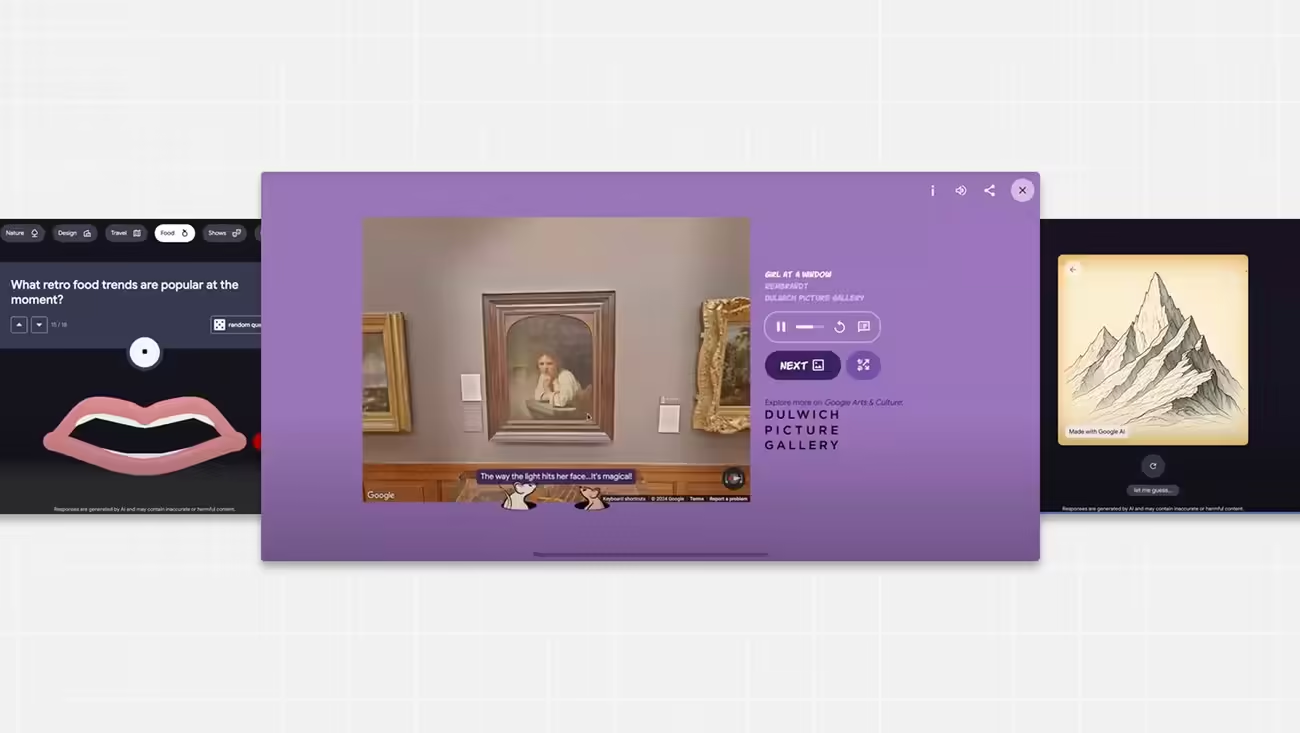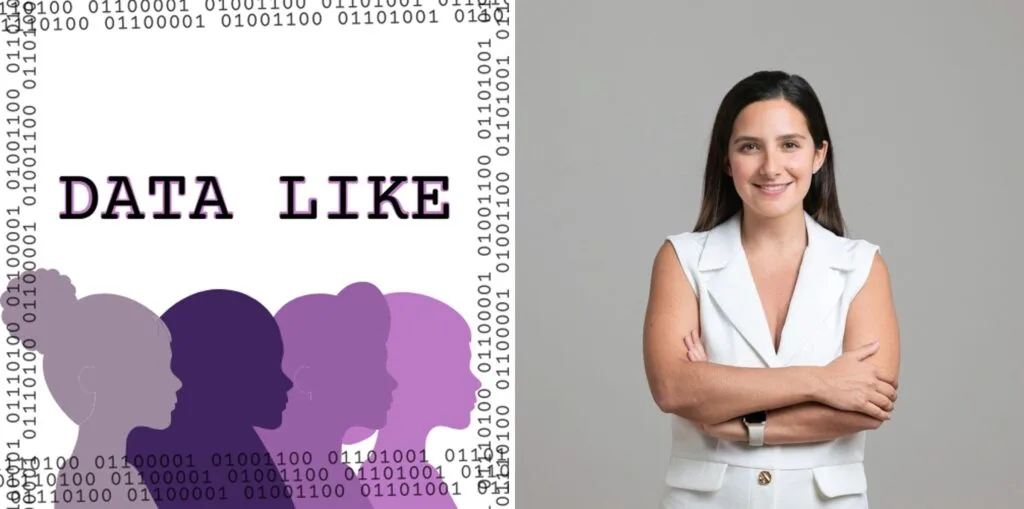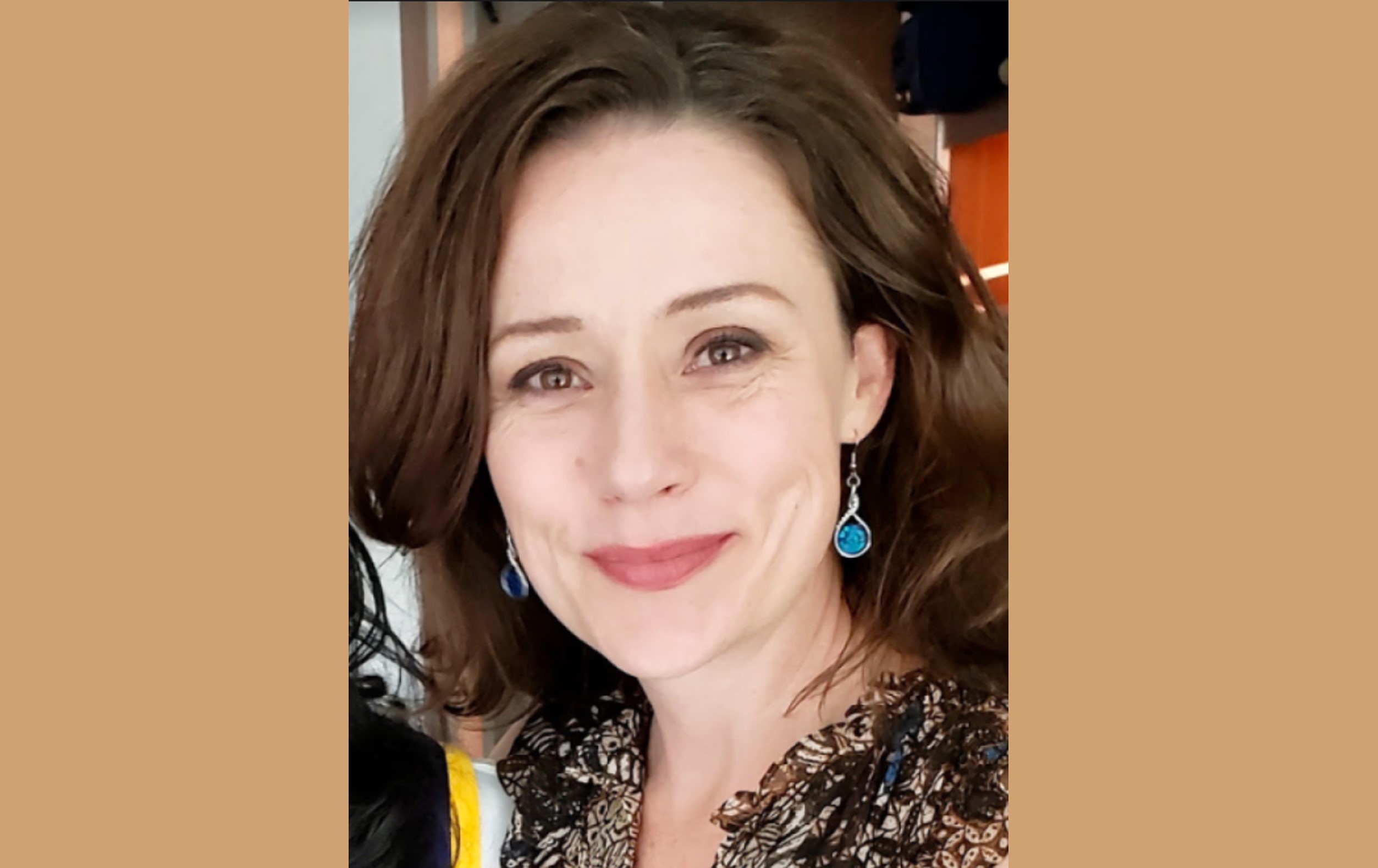
In a series of interviews, we’re meeting some of the AAAI/SIGAI Doctoral Consortium participants to find out more about their research. The Doctoral Consortium provides an opportunity for a group of PhD students to discuss and explore their research interests and career objectives in an interdisciplinary workshop together with a panel of established researchers. In this latest interview, we met Salena Torres Ashton and found out about her work focusing on causality and natural language.
Could you start by telling us a bit about your PhD – whereabouts are you studying and what is the topic of your research?
I am a PhD student at the School of Information at the University of Arizona. Information Science can mean a lot of things, but the easiest way that I like to describe it would be “working with computer science with people in mind”. So, instead of thinking about the efficiency of your algorithm, your purpose also includes people.
I focus on causality and natural language. Often, we look at questions as the cause that affects the answer. I’m looking at how the questions are the effect. I look at why people choose to phrase questions the way they do and what their hidden goals and inferences are, given the way they choose to phrase their questions. My dissertation focuses on text, unstructured discussions, dialogue posts – I’m not looking into vocalics or body language, that’s too broad.
Could you talk about your journey to doing a PhD?
In my first career, I worked as a professional genealogist and historian for 25 years, focusing on the Southwest US and North Mexico. I liked doing the private research and helping teach people to do their own research. But a lot of times when you’re doing family history, there are skeletons in the closet. During my investigations, people would ask me questions in such a way that didn’t really match with what they were saying or doing. For example, they might ask a question like, “why can’t you find my dad? Do you know what you’re doing?” But then I came to realize that maybe their dad illegally immigrated to the country, and they’re trying to hide that because they were scared. So the way they would phrase these questions, after a while, through experience, you realize they’re asking this, but they really mean this. I came to appreciate how questions were seriously important.
My professional colleagues and I were trained in the analog world where we went into archives and dusty basements to read documents, traveling to different libraries across the country or world. Around 2006, sites like ancestry.com started digitizing these records and suddenly everyone became a genealogist. A lot of people felt like their jobs had been taken over by machine learning. And I realized, “well, no, we just have to adapt. Those computer scientists aren’t going to take this away from us – we’re historians, we know what we’re doing.” But the reality was, it did make our jobs both easier and harder because with information retrieval, you had to learn how to completely reframe queries. This transition from hard-bound document indices to online information retrieval was the equivalent of going from card catalog to computer.
I was in my 20s – that age where you’re ambitious and think you can solve every problem in the world. Most of my colleagues at that time were two to three times my age; most people who do genealogy are older. I found this niche where I could help people do their own research on the computer. However, that only worked for a while because then they started getting a lot of false negatives where they would have this document in their hand and they knew the repository where it was physically located, but the computer couldn’t retrieve it for them. With Hispanic research you have two surnames, or with Scandinavian research you have patronymic last names, surnames and locality surnames, and you couldn’t put all of that in there like you could with analog research. Those search fields didn’t exist in the mid-2000s. Given that a lot of the information retrieval algorithms were Anglo-centric, it didn’t help my clients who were predominantly of Hispanic or First Nations ancestry. I remember feeling so frustrated and I thought I needed to get a PhD in machine learning just to learn how to be a better genealogist – and so that’s what I did!
How has your research evolved throughout your PhD?
I started my PhD process wanting to be a better genealogist, thinking about information retrieval and human-computer interaction. Once I got into machine learning, I went from wanting to be some sort of machine learning helper for genealogy to being all about machine learning and natural language (with genealogy just as a hobby). Not necessarily natural language processing, but the semantics and computational semantics behind natural language processing.
My whole PhD process is seeing basically how AI works with questions and how it affects communities, for example, like historians. We don’t really know how what we design in artificial intelligence will affect people. What I see now in the genealogy community, that I do really care about, is a lot of the AI implementations will match records of two different people together because they have the same name, similar ages, similar location. And maybe 90% of the time that’s correct. However, there are some cultures and time periods where people would consistently name their kids after the same grandfather. For example, I researched a US Southern-states line that included five males in the same county, at the same time, with the same age, and belonging to the same extended family, but they’re five different people. AI can’t tell the difference. I’m not worried about AI displacing people. Hand-washing and antibiotics didn’t displace doctors and the calculator didn’t displace the accountant. So when researchers in machine learning, AI, and natural language processing worry about losing their jobs to generative AI, I remind them that I have already lived through this in the mid-2000s. You simply adapt to the needs of the client.
Could you tell us about the work that you presented at the AAAI Doctoral Consortium?
I created a model to study how people work together to solve problems in urban search and rescue situations, focusing on theory of mind and collaboration.
At first, we thought teams would focus on saving people who were in the most danger, but the way players actually behaved was different. I developed a model that accounts for everything we see players do, without assuming they are following a specific plan or goal.
The method I developed combines four different research techniques:
- Multi-agent planning social protocols: This framework represents how team members coordinate and commit to actions, assuming normative behaviors.
- Event annotations focused on question-asking: Right now, I am looking at how asking questions can give us a lot of information about what team members think and what they want to achieve.
- Inductive coding schema called Procedural Grounded Theory (GT): This technique captures important events and inferences in search and rescue video recordings.
- Hierarchical Task Networks: I represented the annotated events into primitive actions and abstract tasks, using the Hierarchical Domain Definition Language (HDDL).
These methods help us better understand and model how people think and work together in emergency situations.
What project are you working on at the moment?
Right now I’m finishing up some work with the DARPA program called SKEMA (Scientific Knowledge Extraction and Model Assembly, Dr Adarsh Pyarelal, PI, University of Arizona). I focus on the natural language extraction of geospatial triggers and temporal triggers, then I will develop a gold-labeled dataset for anything that has to do with locality or time phrases. My group investigates how we can predict temporality or geospatial knowledge across sentences and across paragraphs, instead of single sentence spans.
I’m also creating extensions of various computational formal semantics papers to include causal language inference. I use Haskell in my extensions. This work is the foundation for my dissertation.
Is it quite a multidisciplinary group with lots of different skills in different areas?
Yes, for the work that I presented at AAAI, my PI had a background in physics, my direct supervisor and PhD advisor has a background in philosophy and cognitive science, and the other PhD student that I worked with has a background in statistics and education. My background as a social scientist and historian added qualitative research methods, creating a mixed-methods approach for multi-agent planning and plan recognition.
Talking about AAAI, how was the conference experience and specifically the experience with the doctoral consortium?
I was lucky to be able to attend all 10 days of it, including the workshops and tutorials, and I loved it. Nobody from my university was able to come with me, so I was on my own and I met a lot of people and asked them questions. Interestingly, every time someone asked about my research, the same experience happened. Because my research started with qualitative and inductive reasoning, not the quantitative stuff, I could see people tune out almost immediately. It was my challenge to bring them back in and get across that just because something is qualitative doesn’t mean that it’s not reproducible or trustable. My method is robust and reproducible. With three independent annotators, I achieved a Cohen’s Kappa score of 0.892, which is considered excellent.
For the doctoral consortium itself I was really nervous, even though I’ve been presenting since the 90s. However, I think we all feel nervous, or worry we’re going to embarrass ourselves, no matter how experienced we are. It was also hard to condense two years of research into a two-minute presentation. I enjoyed the experience, and it was fun hearing about other people’s research, how they squished it into two minutes, and how respectful and supportive everyone was. I felt like the whole experience was to uplift each other; there was no competition.
The poster session was very difficult for me because I couldn’t hear people – I wear hearing aids but it wasn’t enough. And so I found myself hoping that no one would talk to me because I couldn’t hear them, which is the opposite of what you want during a poster performance. I asked on the conference (Whova) app what other people who were hard of hearing had liked the most or struggled with during the conference. A couple of people said that they felt the accommodations were wonderful. They felt that the presentations during the talks were very accessible. Like me, they also had trouble with the poster sessions and couldn’t hear people, so they couldn’t attend. But I think that’s just the nature of a poster session, you can only do so much. Otherwise, AAAI went out of their way to really help people who had accessibility challenges, and that made the entire experience very good. They made sure that I had a front row seat so I could read the lips of the speakers, so I felt very cared for. They even made a little hearing aid sticker for my lanyard.
Do you have a plan for what you’re going to do following your PhD?
I want to go back into teaching. In particular, I want to teach mathematics, machine learning or data science at a university or a community college to students who are marginalized or first generation, or students who have the talent but really just need that extra push or mentoring. I’d like to help promote the idea that data science is not scary, AI is not scary, mathematics is not scary. I don’t know if that’s as big of a problem in other parts of the world, but in the United States, there’s this fear of mathematics and computer science and that if you’re not smart enough, or if you weren’t good at it in high school, that you shouldn’t try it in college. That is never true.
I was wondering what advice you’d give someone who’s thinking of doing a PhD, particularly someone who’s coming from another career and isn’t just taking the traditional path?
Don’t do it for the money because you’re not going to make as much during your PhD years as you were before, so make sure that you’re financially able to get through the PhD. If you’re older like me, be humble and receptive enough to put yourself back into a student position and open yourself up to new ideas. If you’ve been out in the field and you were the one who was the boss, you’re used to having things go your way: your deadline, your timeline, and now you’re on someone else’s timeline – be open to that.
If you’re coming from a completely different field, use it as a complementary tool. Don’t think that you have to drop it and not use it ever again. With your experience comes a different way of thinking. A lot of times we’re looking for fresh ideas and I know my background in history enabled me to create this new fresh idea that I presented at AAAI. It’s like when you’re speaking a second language, you don’t drop your first language, you add to that second language and then you become bilingual.
I would also say to enjoy the process. Don’t be in a rush to go through your PhD years. It’s a very tough, but very rewarding, time in my life right now. I waited till my kids were grown, and that meant I could dedicate all of my time and energy to the PhD program. I know that might not be possible for other people, but it was something that I chose to do and I’m loving every moment of it.
Surround yourself with a group of people who will support you and lift you up and push you further. My PhD advisor has always appreciated and supported my tendency to ask a lot of questions, and I really appreciate that. Some advisors don’t like questions all the time. So, find people who are willing to work with you, uplift you, support your strengths, and build up your weaknesses.
Could you tell us an interesting fact about you?
I love backyard gardening. We live in the desert, and I bought my house where they had scraped off all the topsoils, so not even a weed would grow there. I’ve really enjoyed building my soil up from scratch. I haven’t trucked in any dirt. I’ve been using fungus and bacteria and planting throughout the years to build up my soil naturally. And now I have beautiful earth. It’s been a slow process, but it’s 100% natural. I love that process of turning sand into really nice earth that you can pick up and smell and just be happy that you’re outside touching this real dirt that nature created from sand.
About Salena
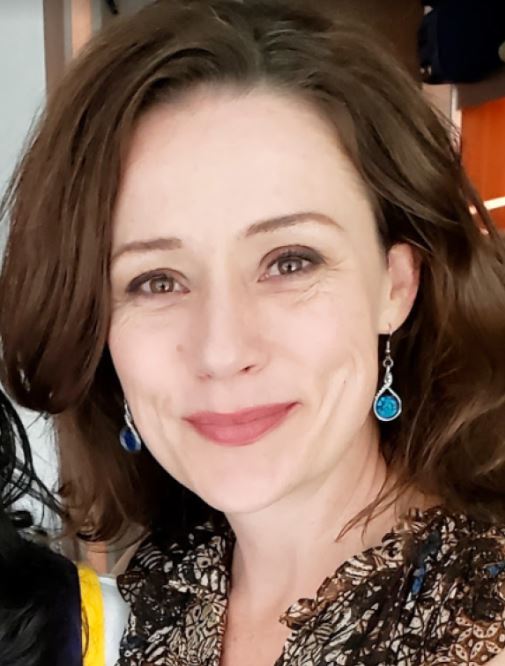 | Salena Torres Ashton is a first-generation college student at the University of Arizona. She will complete her Master’s in Data Science this spring and her PhD in Information Science in 2025. She researches causality and formal semantics in natural language, examining their effects on how people phrase questions. Salena currently teaches ‘Introduction to Machine Learning’ at UA and works as a data science mentor for Posit Academy. She also mentors for the Women in Stem and Engineering program at the U of A. Before attending graduate school, Salena worked for over 25 years as a professional genealogist and holds a BA in History. In her free time, she enjoys solo backpacking, sustainable gardening, and practicing ashtanga yoga. |
